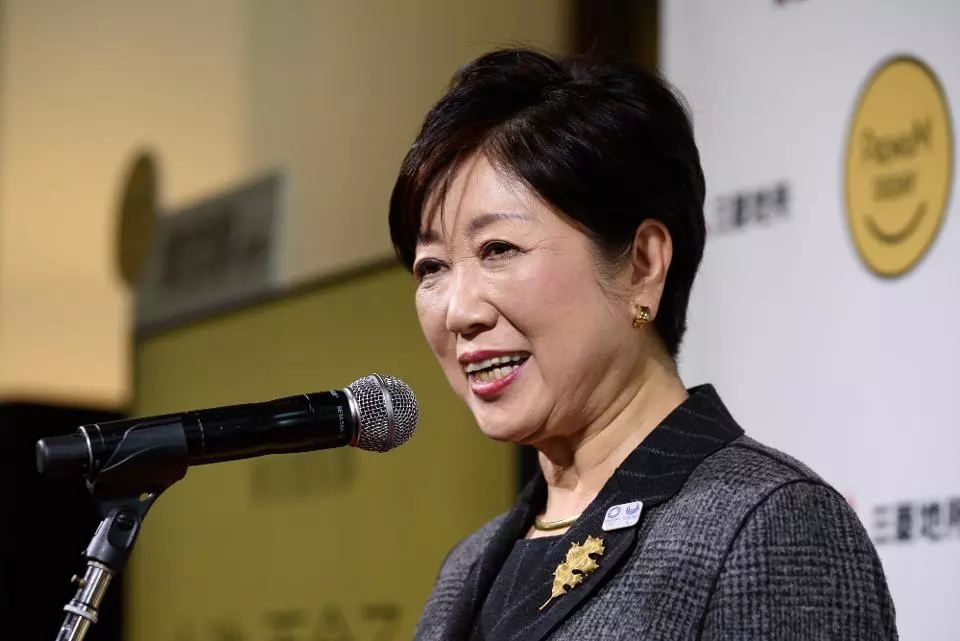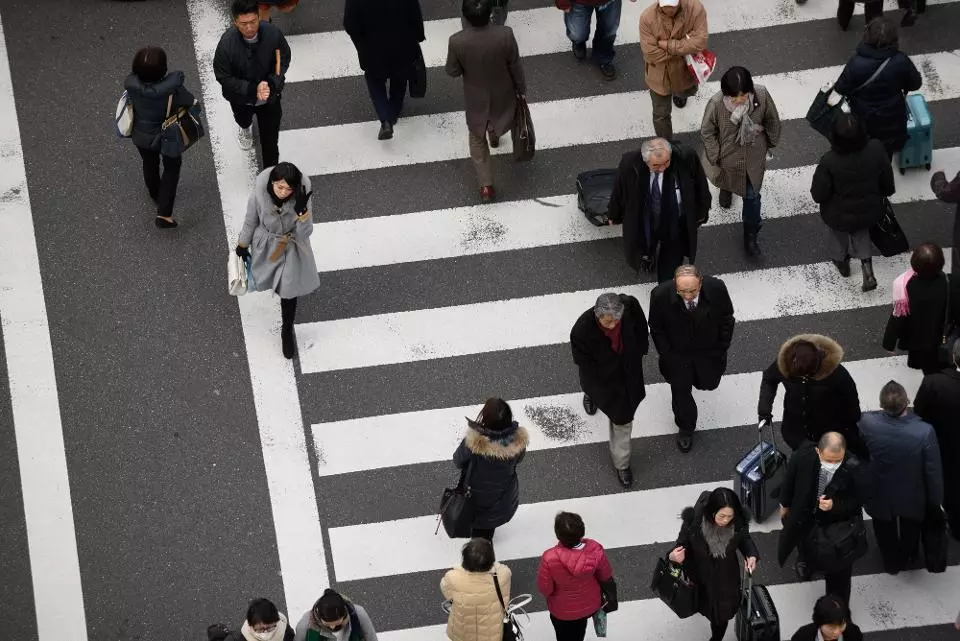Japanese companies have long been known for their widespread practice of overtime, with employees toiling late into the night after the official end of the business day. Japanese drone startup Blue Innovation has offered a technological solution, a special drone called T-Frend designed to reduce overtime by flying around the office after hours, playing loud music and taking pictures of any staff who are still working and reporting them to management.

Pedestrians walk along a sidewalk in Tokyo. Japan is responding to a government campaign to get the country's chronically overworked populace to leave the office by 3 p.m. on the last Friday of every month and go spend some cash. They call it Premium Friday. (Akio Kon/Bloomberg)
This drone, however, is only one of many products developed by Blue Innovation. Most of its other drone technologies are far more advanced and economically important than T-Frend. It has machines capable of navigating in the dark and without GPS or radio signals and it has deployed drone systems for inspecting sewers, tunnels, and high-voltage power lines. However, the T-Frend project has gotten the most media attention, much of it poking fun at the drone. When I spoke to Blue Innovation's Chief Executive Takayuki Kumada recently his frustration was plain over this relatively minor project becoming his best-known, and ridiculed, technology.

Blue Innovation's anti-overtime droneTASEI, K.K.
This little drone, however, offers a lesson in how technology cannot always solve every problem. All over the world, overtime is sometimes necessary—when a startup is on a fast growth path, or the deadline looms on an important project. Yet it's not a sustainable approach when running a firm day-to-day, especially if imposed from the top on employees. In many traditional large Japanese firms, however, frequent overtime is seen as a measure of loyalty, and good for advancing one's career.

Yuriko Koike, governor of Tokyo, speaks during the Premium Friday kick-off event at the Cafe 1894 of the Mitsubishi Ichigokan Museum in Tokyo, Japan. (Akio Kon/Bloomberg)
Along with technologies like T-Frend, the Japanese government and business associations announced last year the Premium Friday program in which on the last Friday of every month, the workday would end at 3:00 pm and employees could leave early. Premium Friday was presented as a way to boost the economy, cut back on overtime and provide a better work-life balance for employees.
A Nikkei survey showed that 37% of large Japanese firms were participating in the program, but direct surveys of employees showed participation to be about 3%—a reminder of how hard it is to reduce the tradition of overtime in Japan. Innovations like Premium Friday, the T-Frend and many overtime compliance programs are well-intentioned but may face an uphill battle to bring change. Takeyuki himself was quick to point out that technology isn’t the answer: "The T-Frend isn’t intended to be a complete solution to the overtime problem, but it can be a useful part of the solution. It can encourage a more honest conversation between employees and management about overtime policies."
So if technology isn’t the solution, what is?
The answer may lie in Japan's startup culture. Most Japanese startups, including Blue Innovation, are creating cultures that more open, promote work-life balance, and discourage overtime. Takeyuki explained that his company has policies to offer flextime and remote work—and these were just as important as technology.

A businessman sits at the entrance of a building in Tokyo. (YOSHIKAZU TSUNO/AFP/Getty Images)
One good explanation of the shift brought by startups comes from Masanori Hashimoto, CEO and founder of software startup Nulab, who says: "Most startups are founded by teams, and from the beginning the CEO must consider the opinions of the co-founders. As the startup grows, this naturally leads to an open corporate culture." Startups also tend to measure staff by actual productivity, not by the number of hours at a desk. In the end, Japan’s overtime culture might fade away not because of drones and government programs, but by startups showing that a better work-life balance is a more profitable and sustainable way to do business.

Pedestrians cross a road in Tokyo, Japan. (Akio Kon/Bloomberg)
I'm a Tokyo-based founder, consultant, author, and teacher and host the Disrupting Japan podcast. I also teach corporate innovation at NYU's Shinagawa campus.
A version of this article appeared on Forbes.








Leave your comments
Post comment as a guest